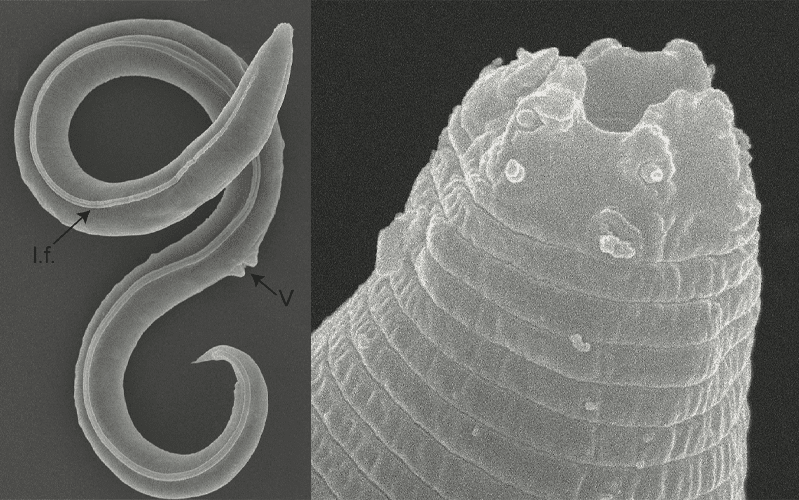By: William Wang
Ancient microscopic worms known as nematodes have been successfully revived after being frozen in the Siberian permafrost for a staggering 46,000 years. This groundbreaking achievement opens up new possibilities for understanding the resilience of life in extreme conditions and has the scientific community buzzing with excitement.
The study was conducted by a team of scientists led by Dr. Marina Malakhova, a renowned microbiologist from the Russian Academy of Sciences. Their expedition to the permafrost region in the Siberian Arctic aimed to uncover ancient life forms preserved in the icy time capsule.
After carefully extracting samples from the permafrost layers, the researchers discovered a group of nematodes encased in a frozen state. Using state-of-the-art laboratory techniques, the team managed to thaw the dormant worms and bring them back to life.
“We were astonished by this incredible finding. These nematodes had been frozen in a suspended animation-like state for an unimaginable length of time,” exclaimed Dr. Malakhova.
The revival of the ancient worms poses intriguing questions about the limits of life’s adaptability. Dr. Sergei Popov, a cryobiologist and member of the research team, elaborated, “The nematodes’ ability to survive in a frozen state for such an extended period challenges our understanding of life’s resilience. It is a testament to the remarkable survival mechanisms that some organisms have evolved over millennia.”
The discovery also holds significant implications for astrobiology, as it sheds light on the potential for life to endure in harsh environments beyond Earth. Dr. Emily Chang, an astrobiologist at NASA, emphasized the relevance of the findings, “The ability of these nematodes to survive in conditions that mimic the extreme cold of space broadens our understanding of the possible habitats that could sustain life on other celestial bodies.”
Moreover, the revived nematodes could have practical applications for modern science. Dr. Anna Ivanova, a geneticist on the team, explained, “The successful revival of these ancient worms opens up new avenues for studying their genetic makeup and adaptations. This could lead to the development of innovative strategies for preserving biological material and tissues for medical and environmental purposes.”
The discovery has also sparked excitement among climate scientists who study the melting Arctic permafrost. As global temperatures rise and the permafrost thaws, there are concerns about the release of ancient microorganisms that could impact modern ecosystems. Dr. Michael Smith, a climate scientist, commented, “Understanding the biology of these ancient nematodes is crucial in predicting potential ecological consequences as the permafrost continues to thaw due to climate change.”
While the revival of the nematodes marks a remarkable breakthrough, it also raises ethical considerations. Dr. Malakhova acknowledged these concerns, stating, “We must approach our research with great responsibility, considering the implications of potentially reviving ancient organisms that could interact with modern ecosystems.”
The revival of nematodes frozen for 46,000 years in Arctic permafrost is a groundbreaking achievement, expanding knowledge of life’s resilience with implications for astrobiology, climate change research, and medical advancements. It reminds us of the enduring tenacity of life and the mysteries that await exploration in Earth’s icy past.











